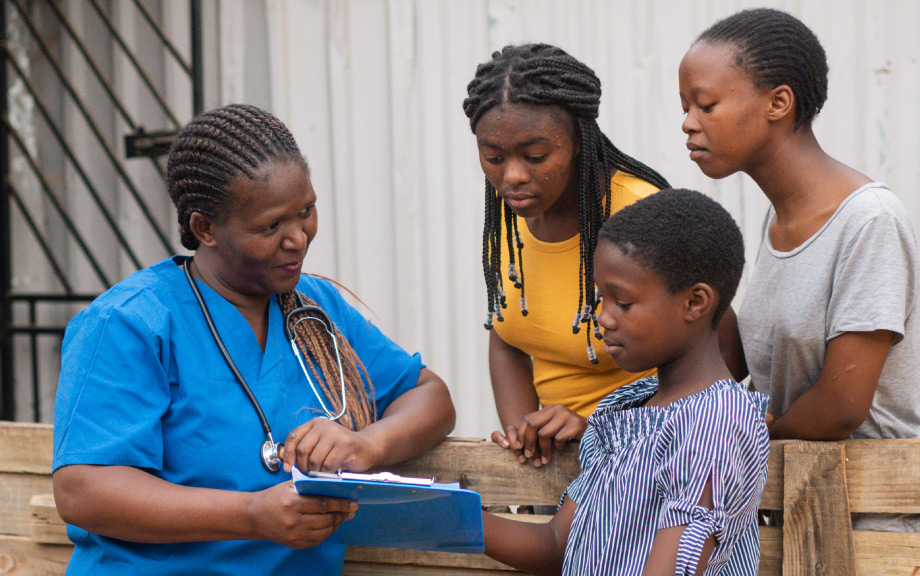Community Health Worker
Community Health Worker

Course Overview
The Community Health Worker (CHW) course is designed to prepare learners with the knowledge and practical skills needed to promote health, prevent disease, and support individuals and families in accessing healthcare services. Community Health Workers serve as the bridge between healthcare systems and communities, helping to educate, advocate, and provide basic care within local settings. The course combines theory and field practice to ensure learners are effective in promoting healthier communities.
Course Objectives
By the end of this course, learners will be able to:
Educate communities about disease prevention, nutrition, and hygiene.
Provide basic first aid and health support.
Identify health issues and refer individuals to appropriate facilities.
Support maternal, child, and family health initiatives.
Assist in vaccination campaigns and community outreach programs.
Collect and record health data for community health monitoring.
Advocate for improved healthcare access within underserved areas.

Who Should Enroll?
This course is ideal for:
Individuals seeking to start a career in healthcare.
Those aspiring to work in hospitals, clinics, or community health centers.
Students who plan to further their studies in nursing or related medical fields.
Caregivers who want to gain formal training and certification.
Course Modules
1. Introduction to Community Health
Roles and responsibilities of CHWs
Ethics and professionalism in community health
2. Basic Human Anatomy & Physiology
Understanding body systems and common illnesses
Recognizing health risk factors
3. Health Promotion & Disease Prevention
Nutrition, sanitation, and personal hygiene
Preventing communicable and non-communicable diseases
4. Maternal & Child Health
Antenatal and postnatal care support
Infant and child health education
5. First Aid & Emergency Response
Basic life support and wound care
Responding to accidents and medical emergencies
6. Community Outreach & Education
Communication strategies for health education
Organizing awareness campaigns and group sessions
7. Data Collection & Health Records
Recording and reporting community health information
Using data to support health programs
8. Practical Field Experience
Working directly with communities
Supporting healthcare professionals in outreach programs
Learning Methods
- Classroom lectures and interactive discussions
- Role-playing and case studies
- Practical demonstrations
- Field practice in community health projects
Assessment & Certification
- Continuous assessments (quizzes, assignments, presentations)
- Practical and fieldwork evaluations
- Final examination
- Successful participants earn a Certificate in Community Health Worker, enabling them to serve in community health initiatives.
Career Opportunities
Graduates can work with:
Hospitals and Clinics (as outreach support)
Non-Governmental Organizations (NGOs)
Public Health Agencies
Community Development Projects
Schools and Faith-Based Organizations
They may also advance into Nursing, Public Health, Epidemiology, or Social Work with further studies.
Duration & Requirements
- Duration: 6 – 12 months (depending on program structure)
- Requirements: Minimum secondary school education, good communication skills, and a passion for community service.

